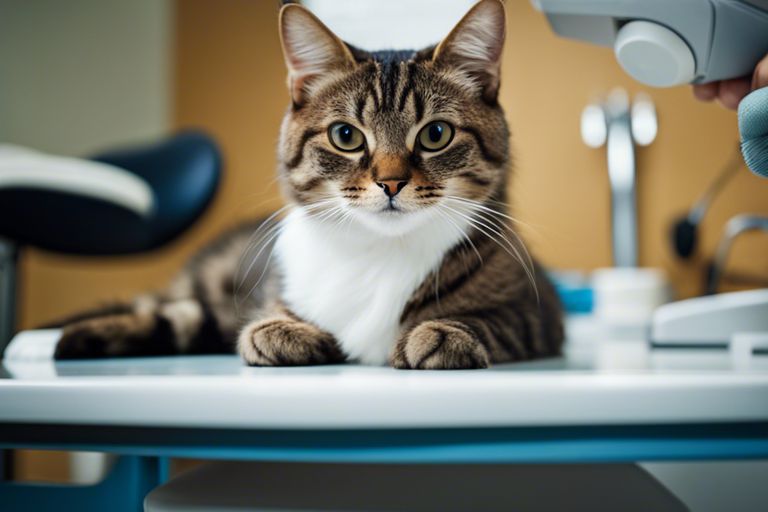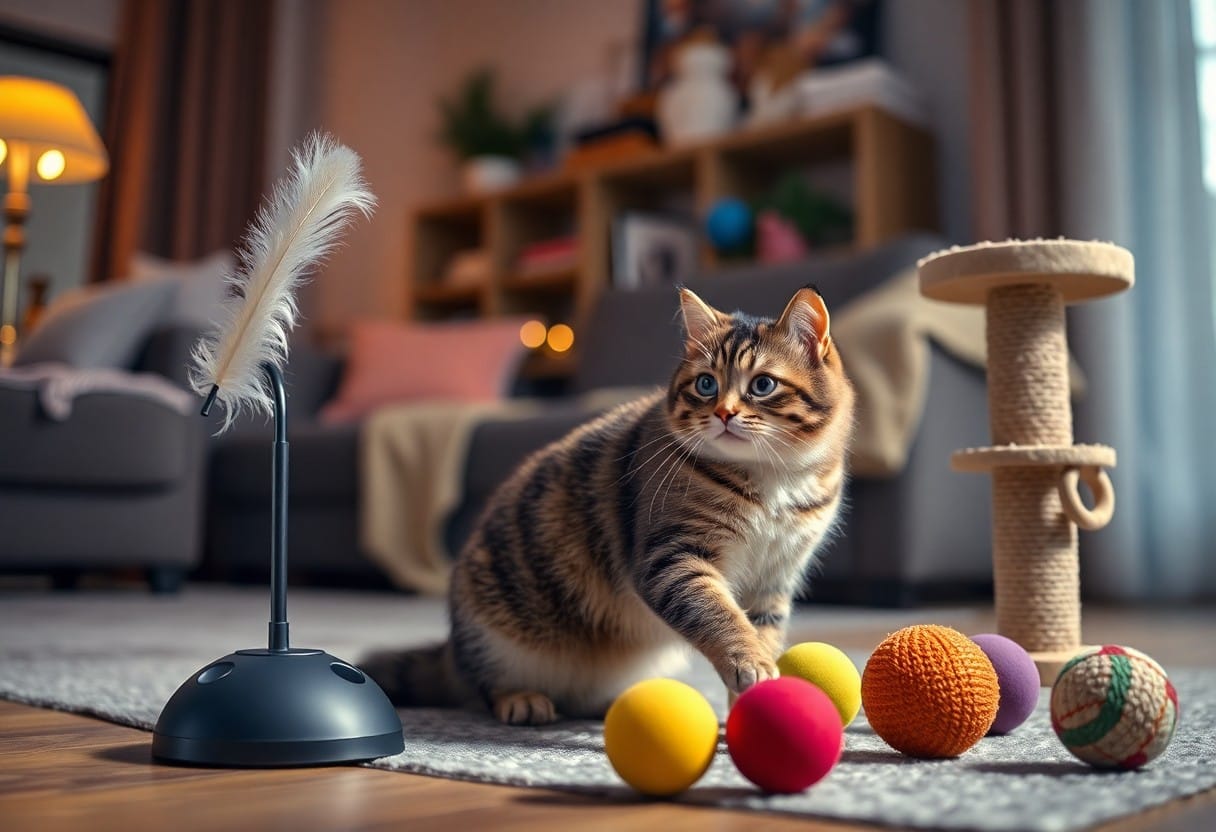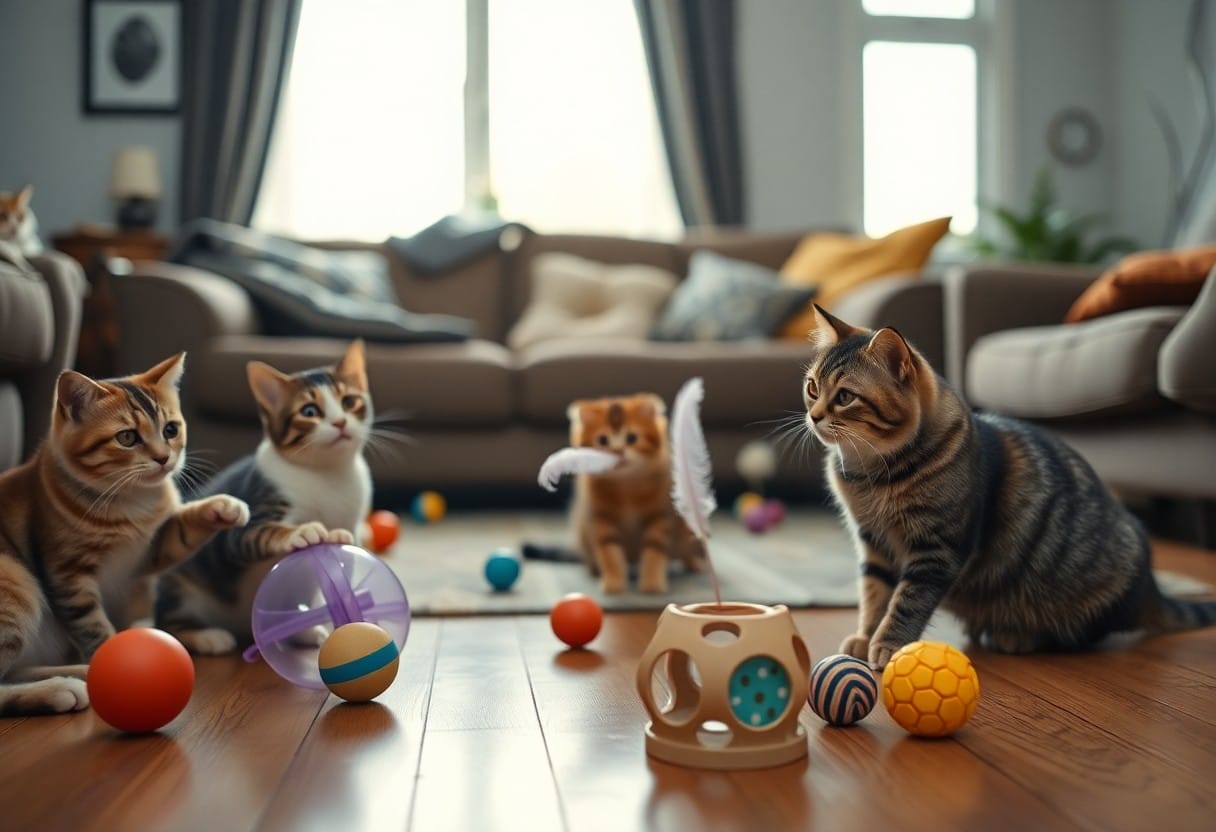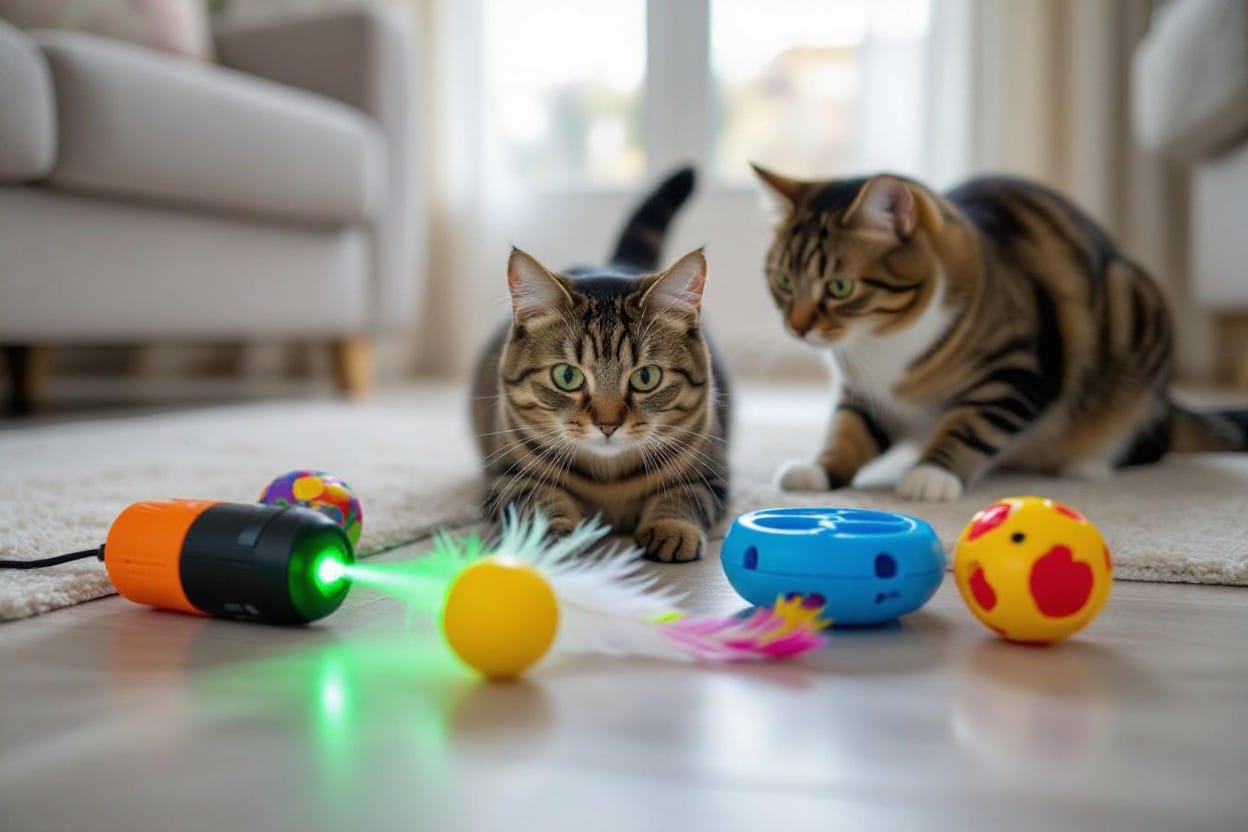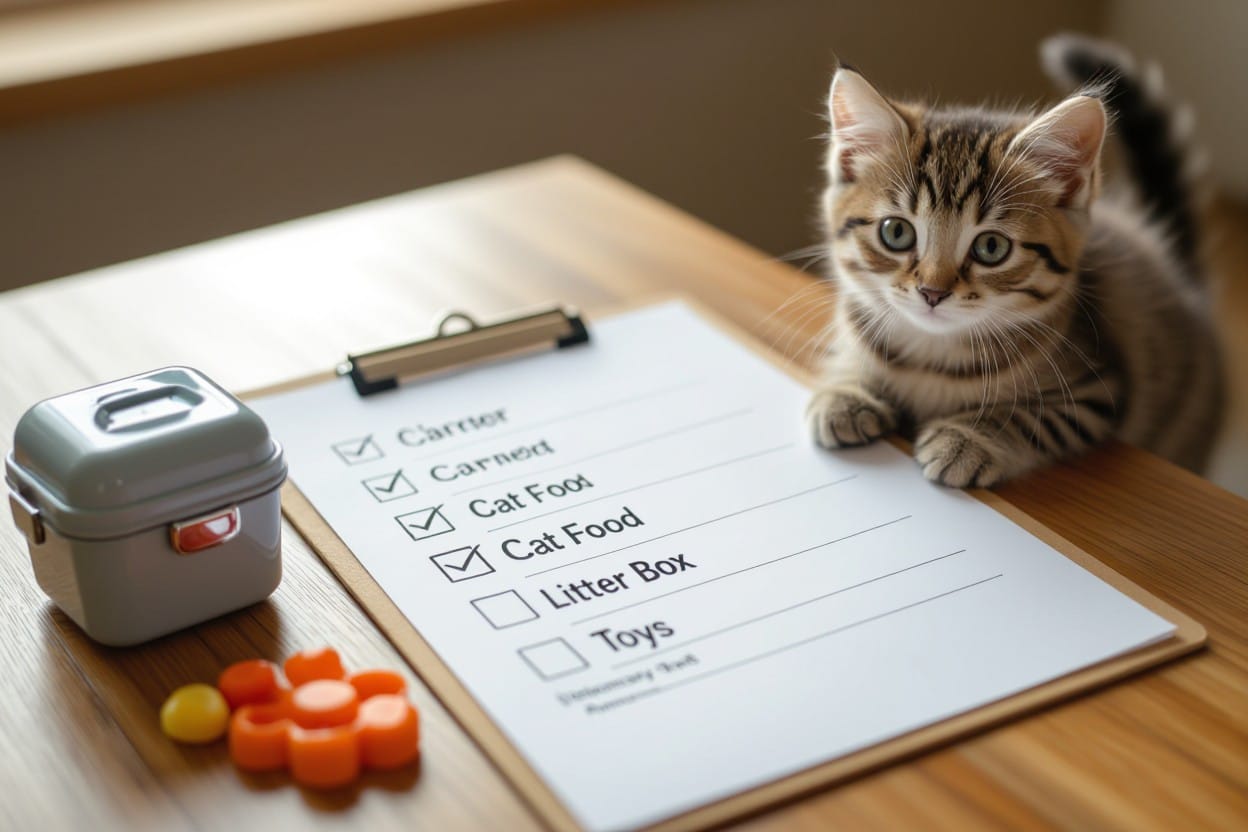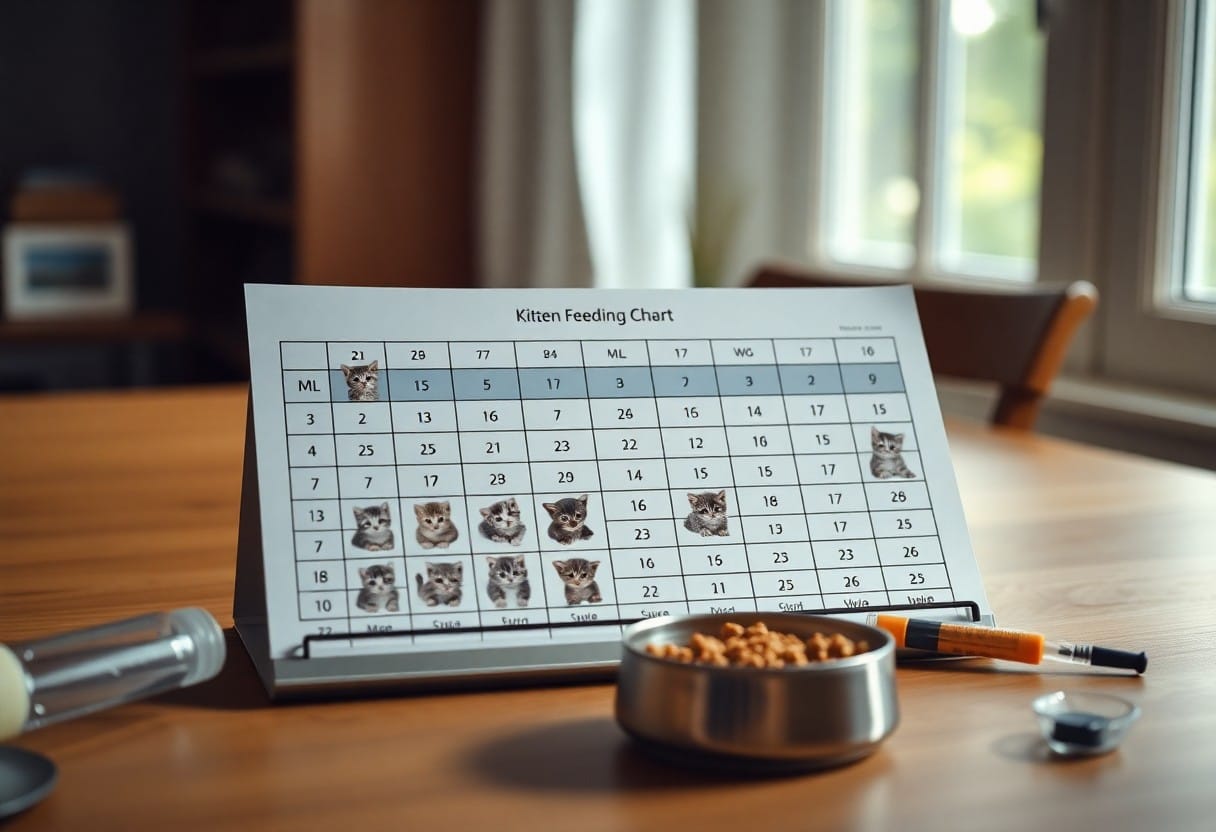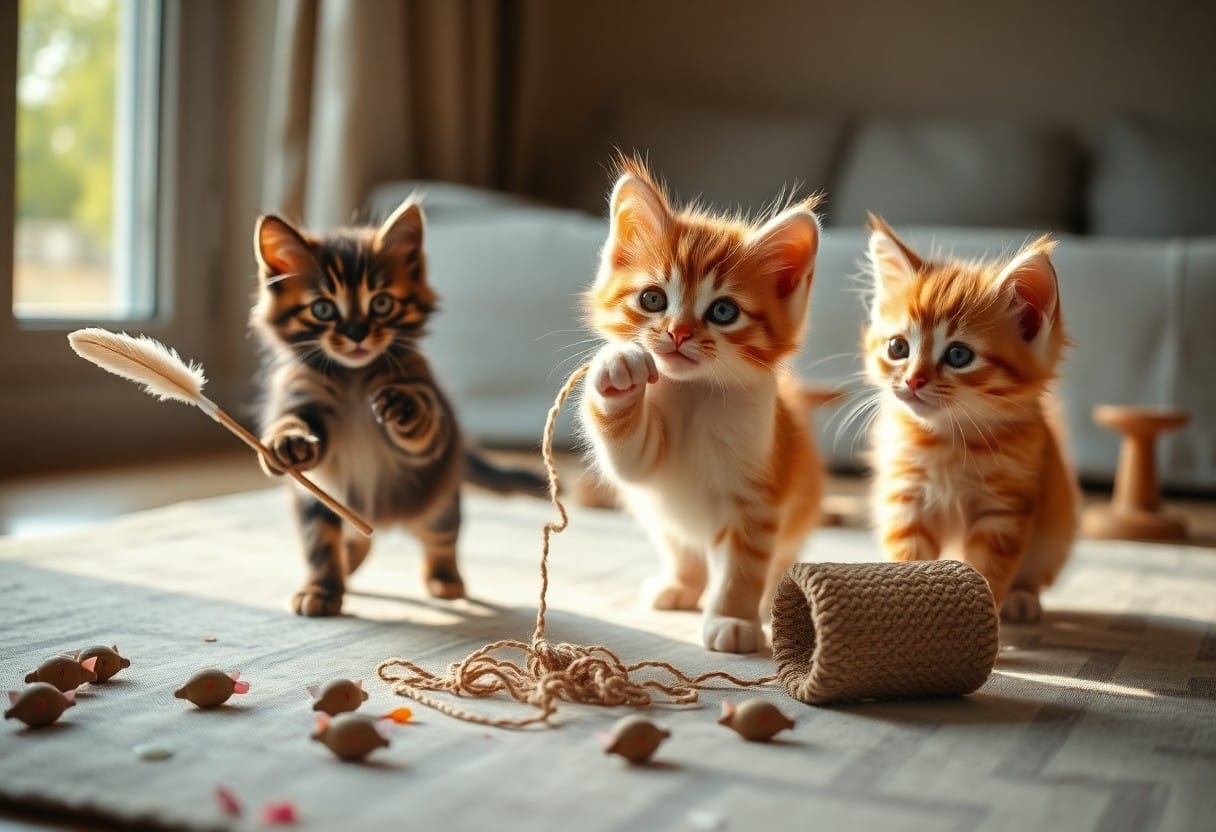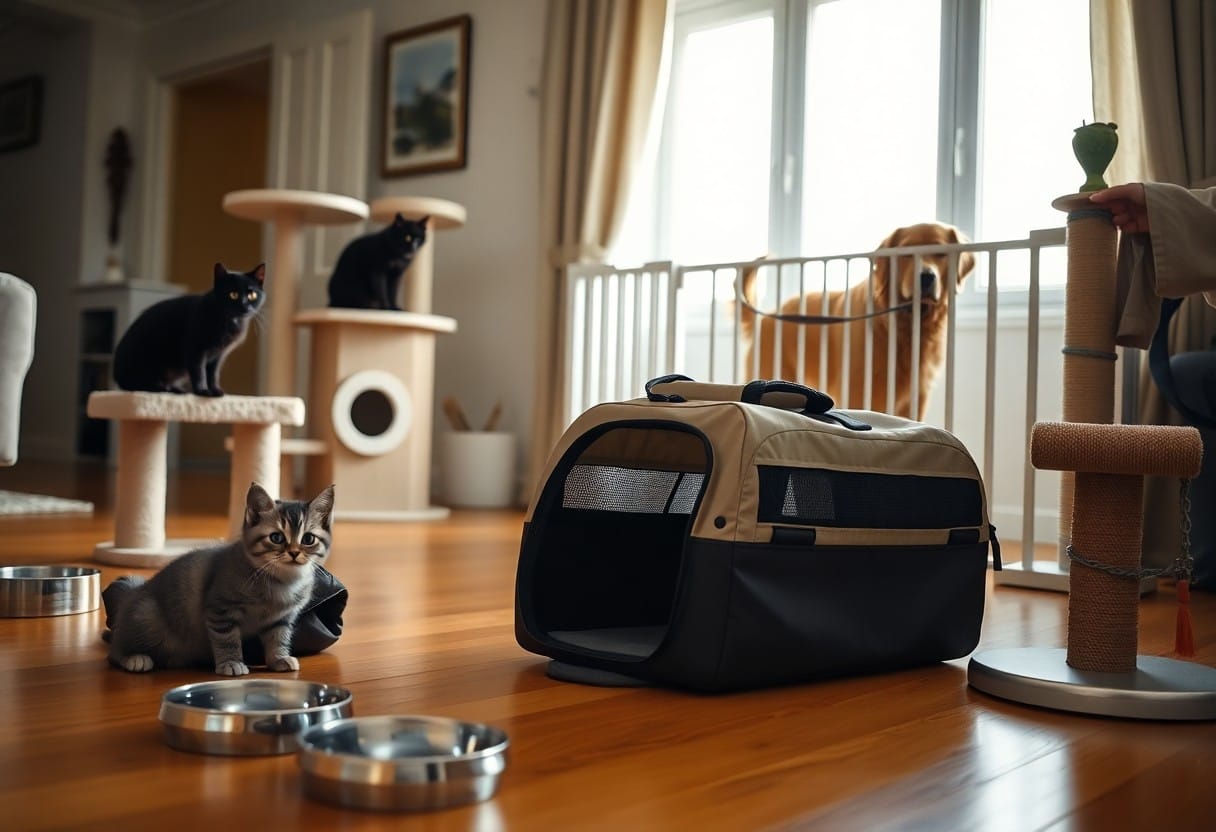Just like humans, cats also need regular check-ups to ensure they are healthy and happy. Regular veterinary visits can help prevent health issues, detect any potential problems early on, and ensure your feline companion is receiving the necessary care they need. In this blog post, we will discuss the importance of routine veterinary check-ups for your cat and the many benefits they can provide for your beloved pet’s well-being.
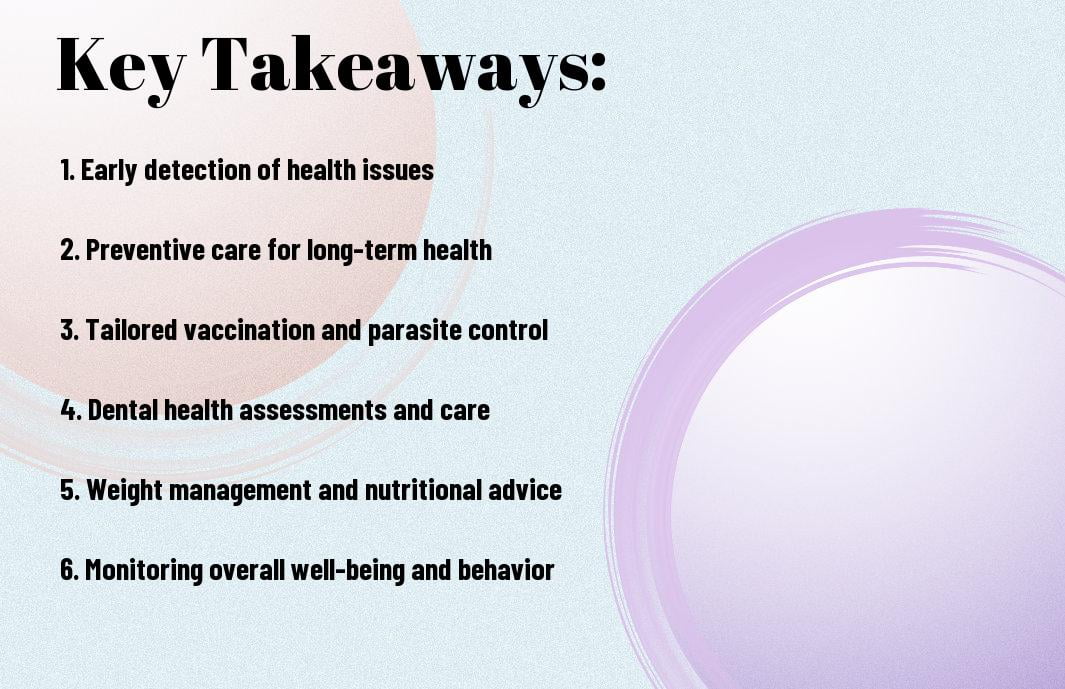
Understanding Your Cat’s Health Needs
There’s no one-size-fits-all approach when it comes to understanding your cat’s health needs. Cats require different care at various stages of their lives, from kittenhood to the senior years. It’s crucial to be aware of the specific health requirements for each life stage to ensure your feline companion stays healthy and happy.
Life Stage Health Requirements
Cats have unique health needs depending on their age. Kittens need a series of vaccinations to protect them from common diseases, while adult cats benefit from annual check-ups to catch any potential health issues early. Senior cats may require more frequent visits to address age-related conditions such as arthritis or kidney disease. Understanding these life stage health requirements can help you provide the best care for your cat throughout their lifespan.
Recognizing Subtle Signs of Illness
Needs
It’s important to pay attention to subtle signs of illness in your cat, as they are masters at hiding discomfort. Changes in behavior, appetite, litter box habits, or appearance can indicate an underlying health issue that needs to be addressed. Regular veterinary check-ups can help detect these subtle signs early and prevent potential health problems from escalating. Your vet can provide guidance on what signs to look out for and how to best monitor your cat’s health at home.
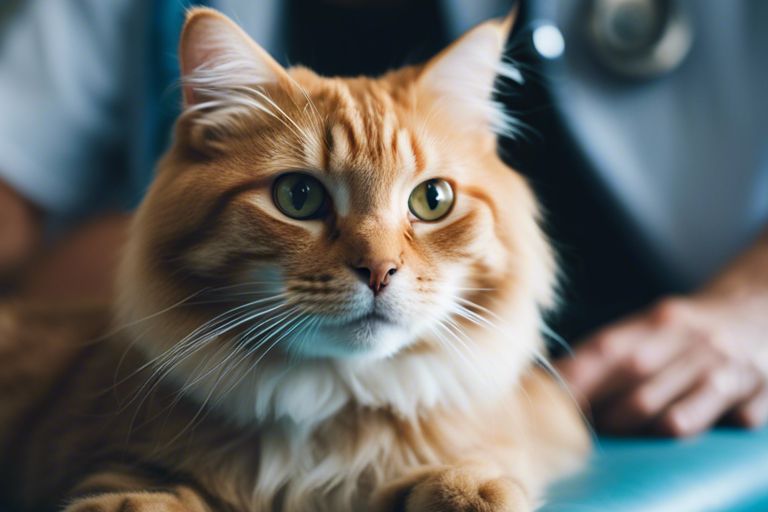
Preventive Care Essentials
Vaccinations and Parasite Control
Control of vaccinations and parasite infestations is a critical aspect of preventive care for your feline friend. Vaccinations help protect your cat from serious and sometimes deadly diseases, such as rabies, feline leukemia, and distemper. Your veterinarian will develop a vaccination schedule tailored to your cat’s individual needs, based on factors like age, lifestyle, and risk of exposure. Additionally, regular deworming and flea/tick prevention are imperative to maintain your cat’s health and well-being.
Dental Hygiene and Nutritional Counseling
Dental care plays a significant role in your cat’s overall health. Poor dental hygiene can lead to periodontal disease, affecting not only your cat’s teeth and gums but also their internal organs. Your veterinarian can provide dental cleanings and treatments to prevent dental issues and keep your cat’s mouth healthy. Nutritional counseling is also crucial in maintaining your cat’s health. A balanced diet tailored to your cat’s age, breed, and health condition is imperative for their overall well-being.
To ensure your cat’s dental health and nutritional needs are met, consult your veterinarian for guidance on proper oral hygiene practices and suitable dietary choices. They can recommend specific dental care products and dietary options tailored to your cat’s individual requirements.
The Role of Regular Physical Examinations
Early Detection of Health Issues
Your cat’s regular veterinary examinations play a crucial role in the early detection of health issues. Cats are notorious for hiding signs of illness, making it challenging for pet owners to notice when something is wrong. During these examinations, the veterinarian can conduct a thorough assessment of your cat’s overall health, including checking for any subtle signs of illness that may go unnoticed at home. Early detection of health problems can lead to more effective treatment and better outcomes for your feline companion.
Monitoring Weight and Body Condition
On top of early detection, regular physical examinations also allow the vet to monitor your cat’s weight and body condition. Maintaining a healthy weight is vital for your cat’s overall well-being, as obesity can lead to various health issues such as diabetes, arthritis, and heart disease. By monitoring your cat’s weight and body condition during routine check-ups, the veterinarian can provide guidance on proper nutrition and exercise to help keep your cat at a healthy weight and prevent obesity-related health problems.
Regular physical examinations are necessary for the overall health and well-being of your cat. These check-ups allow veterinarians to detect any health issues early on, monitor your cat’s weight and body condition, and provide preventive care to help your feline friend live a long and healthy life. Make sure to schedule regular veterinary check-ups for your cat to ensure they receive the best possible care.
Diagnostic and Screening Tests
Bloodwork and Urinalysis
Urinalysis is a key diagnostic test that provides valuable information about your cat’s overall health. It can detect various conditions such as urinary tract infections, kidney disease, diabetes, and dehydration. The test involves analyzing the physical, chemical, and microscopic properties of your cat’s urine, helping the veterinarian assess the functioning of the kidneys and other organs.
Regular bloodwork is also vital for detecting underlying health issues in cats. Blood tests can reveal problems such as anemia, liver and kidney dysfunction, infections, and even cancer. By analyzing blood samples, veterinarians can monitor organ function, assess glucose levels, check for signs of inflammation or infection, and evaluate your cat’s overall health status.
Imaging Studies: X-rays and Ultrasounds
Imaging studies such as X-rays and ultrasounds play a crucial role in diagnosing internal conditions that may not be visible during a physical examination. X-rays are commonly used to evaluate the bones, lungs, heart, and abdomen, while ultrasounds provide detailed images of organs such as the kidneys, liver, and bladder.
Plus: These non-invasive procedures allow veterinarians to identify abnormalities such as tumors, organ enlargement, and foreign bodies. By conducting imaging studies, your veterinarian can make an accurate diagnosis and determine the most appropriate treatment plan for your feline companion.
Behavioral and Emotional Health
Assessing Behavioral Changes
Keep a close eye on your cat’s behavior and any changes that may arise. Cats are experts at hiding signs of illness, but alterations in their behavior can often be an early indicator that something is not right. Look out for changes in appetite, litter box habits, energy levels, social interactions, grooming habits, and vocalization patterns. If you notice any concerning behavioral changes, it is crucial to bring them to the attention of your veterinarian during regular check-ups.
The Impact of Mental Well-being on Physical Health
Any cat owner knows that cats have complex emotional lives. An overlooked aspect of your cat’s health is their mental well-being. Stress, anxiety, and other emotional issues can have a significant impact on your cat’s physical health. An unhappy or stressed cat is more susceptible to illnesses and can exhibit a range of physical symptoms such as urinary issues, digestive problems, and skin conditions.
Mental stimulation is important for a cat’s well-being. Environmental enrichment, interactive play, and social interaction are crucial for maintaining your cat’s mental health. Regular veterinary check-ups provide an opportunity to discuss your cat’s emotional well-being with your veterinarian and address any concerns that may be affecting their overall health.
The Economic Benefits of Preventive Care
Reducing Long-term Healthcare Costs
All cat owners want to ensure their furry companions lead long and healthy lives. Preventive care plays a crucial role in achieving this goal by catching potential health issues early on, which can ultimately reduce long-term healthcare costs. By keeping up with regular annual vet check-ups, vaccinations, and screenings, you can prevent serious illnesses or detect them early when they are easier and less expensive to treat.
Insurance and Wellness Plans
Reducing the financial burden of veterinary expenses is a compelling reason to invest in insurance or wellness plans for your cat. These plans typically cover preventive care services such as annual check-ups, vaccines, and parasite control. By spreading out the cost of routine care through monthly premiums, you can better budget for your cat’s healthcare needs and potentially avoid the financial stress of unexpected medical expenses. Additionally, having insurance or a wellness plan encourages cat owners to stay proactive about seeking veterinary care, leading to overall better health outcomes for their feline companions.
Insurance and wellness plans provide peace of mind knowing that you can provide your cat with the necessary care without financial constraints. They also encourage regular vet visits, which can lead to early disease detection and intervention, ultimately saving you money on expensive treatments for advanced illnesses.
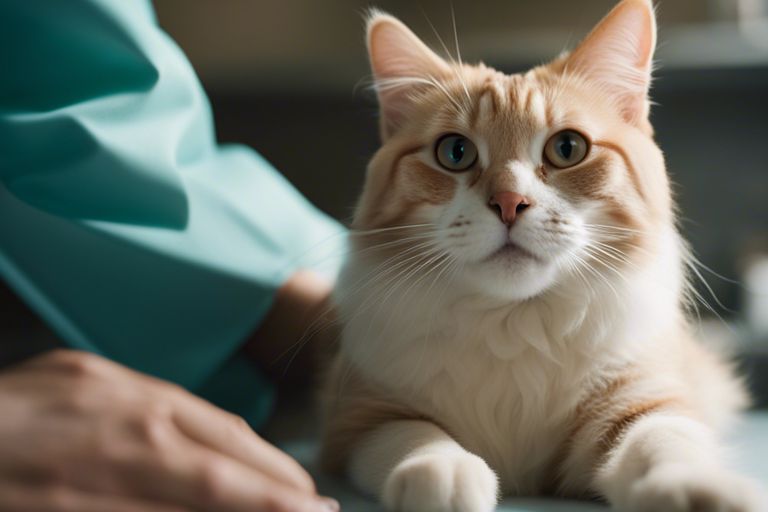
Building a Relationship with Your Veterinarian
Communication and Trust
Many cat owners underestimate the importance of building a strong relationship with their veterinarian. Communication and trust are vital components of this relationship. It’s important to feel comfortable discussing any concerns or questions you have about your cat’s health with your veterinarian. By establishing open lines of communication, you can work together to provide the best possible care for your feline friend.
Personalized Care for Your Cat
For personalized care tailored to your cat’s specific needs, building a relationship with your veterinarian is crucial. Veterinarians who have a good understanding of your cat’s medical history, behaviors, and lifestyle can offer more effective and personalized treatment plans. This personalized approach can lead to better health outcomes for your cat in the long run.
Your veterinarian will be able to recommend specific preventive measures and treatments based on your cat’s individual characteristics and health history. This tailored approach ensures that your cat receives the most appropriate care, addressing any unique needs or concerns that they may have.
Conclusion
With this in mind, regular veterinary check-ups are crucial for maintaining your cat’s overall health and well-being. These check-ups help to catch any potential health issues early on, ensuring prompt treatment and a higher chance of successful outcomes. Additionally, preventive care measures such as vaccinations and parasite control can be administered during these visits, further safeguarding your cat’s health.
By prioritizing regular veterinary check-ups for your cat, you are demonstrating your commitment to providing the best possible care for your feline companion. The benefits far outweigh any potential inconvenience or cost, as the long-term health and happiness of your cat depend on these proactive measures. Consult with your veterinarian to establish a personalized wellness plan for your cat and ensure that they receive the preventive care they need to thrive.
FAQ
Q: Why are regular veterinary check-ups important for my cat?
A: Regular veterinary check-ups are crucial for your cat’s well-being as they help in the early detection and prevention of health issues. Veterinarians can conduct thorough physical examinations and recommend vaccines to keep your cat healthy.
Q: How often should I take my cat for a veterinary check-up?
A: It is recommended to take your cat for a veterinary check-up at least once a year. However, senior cats or those with existing health conditions may require more frequent visits as advised by the veterinarian.
Q: What can I expect during a routine veterinary check-up for my cat?
A: During a routine check-up, the veterinarian will examine your cat’s overall health, check for any signs of illness, administer necessary vaccines, conduct preventive screenings, and provide recommendations for diet and exercise.
Q: How can regular veterinary check-ups save me money in the long run?
A: By detecting health issues early through regular check-ups, you can prevent costly treatments for advanced illnesses. Vaccinations and preventive care recommended during check-ups can also help avoid expensive medical procedures.
Q: What are some signs that indicate my cat needs an immediate veterinary attention?
A: Some signs that indicate your cat needs immediate veterinary attention include sudden weight loss, changes in appetite or behavior, difficulty breathing, vomiting or diarrhea, lethargy, and any visible injuries. If you notice any of these signs, contact your veterinarian promptly.
